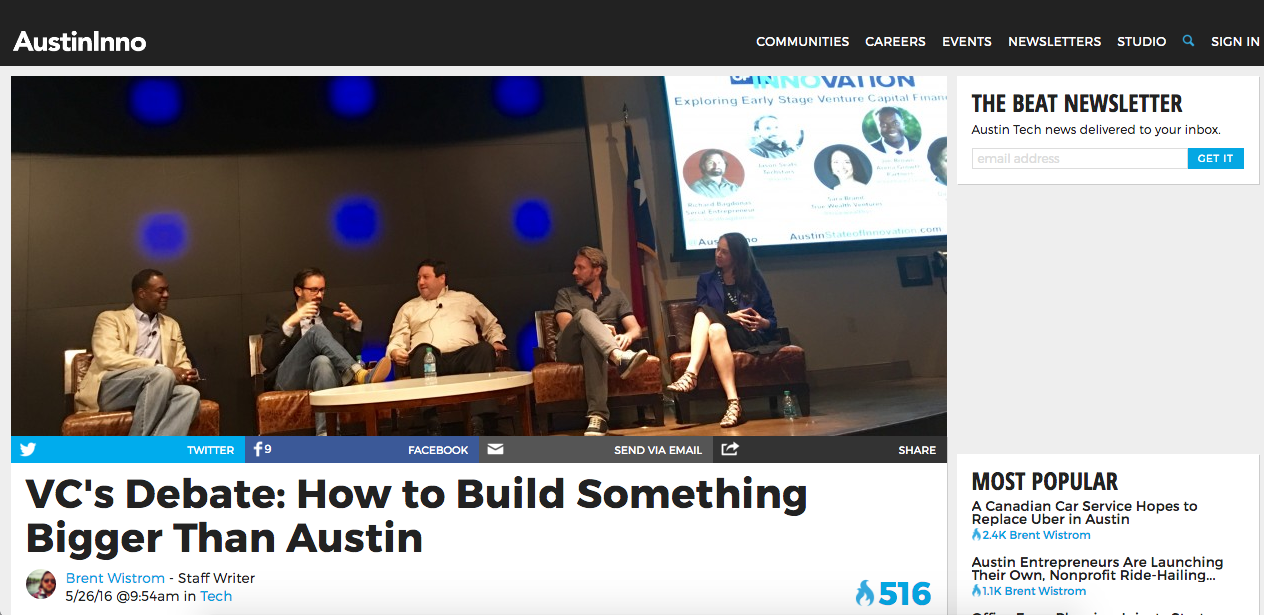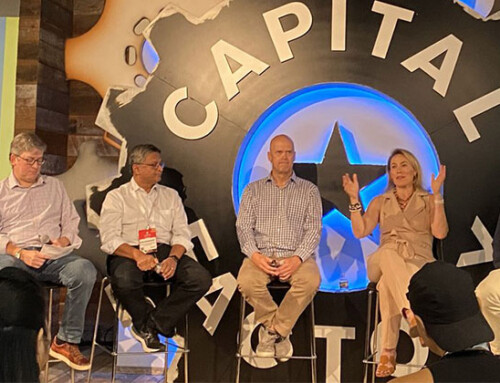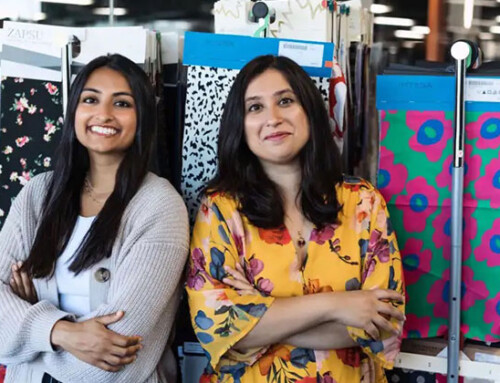This article originially appeared on AustinInno reporting by Brent Wistrom.
Austin doesn’t have the deep-pocketed venture capital firms that fuel startups on the east and west coasts. But doesn’t mean local startups can’t land deals through syndication networks — and it shouldn’t be an obstacle that holds back big ideas that don’t have to be defined by where they’re born.
That was one of the takeaways from a fiery debate about Austin’s venture capital scene at the State of Innovation on Wednesday night.
Jason Seats, a partner in Techstars’ venture capital fund, suggested that branding everything as Austin-made and thinking of venture capital in geographic terms holds back innovation.
“The path to making Austin better and bigger is to build things that are bigger and better than Austin,” he said.
Richard Bagdonas, a serial entrepreneur who is working on a new healthcare integration startup called M17, said he gets the idea of making something bigger than Austin. But he said startups are often encouraged to be hyper-focused on a small niche.
“In Austin, it’s very heavily driven on revenue,” he said. “It’s ‘how fast can you get to $1 million?’ When we were pitching in the Bay Area, it was ‘how fast can you get a million users.’”
More startups should consider taking the ideas and strategies prevalent in Silicon Valley and apply them in Austin, said Jim Brown, a founder and general partner at Arena Growth Partners. Austin has a lot of seed funding opportunity, and angel investors have stepped up in big ways to back great ideas.
“If you can’t find seed funding in Austin, you’ve got a bigger issue because it’s all over the place,” he said. “But, they tend to be oil and gas folks, real estate folks, folks who were at Dell or at the right place at the right time. That’s not a bad thing, that’s a good thing. They’re very well-intentioned. They’re smart folks and they put money to work. But after they do that they grab their pompoms and they yell ‘go team!’ And as an entrepreneur you’re kind of on your own.”
Austin is no doubt a place where startup funding deals tend to be smaller than in other major tech hubs like Silicon Valley, Boston, New York and Chicago. But venture capital syndicate networks, where several firms team up to fund great ideas, represent one of the biggest opportunities for Austin startups to find growth-stage funding.
“It’s the best time to get funding at a macro level, probably ever,” said Sara Brand, a founding general partner at True Wealth Ventures and co-founder of (512) Brewing Company.
But one of the biggest themes that 100-plus people heard during the State of Innovation event was that there’s not much to be gained from endless debates on Twitter, Medium and other media. It’s about getting to it and being innovative despite geographical and ideological constraints.
William Hurley, or Whurley as he is commonly known, said founders often let fear, uncertainty, funding and doubt hold them back from chasing their dreams.
“Just go do it,” he urged the crowd of entreprenuers, venture capitalists and tech enthusiasts. “Just go do something that’s innovative. Even if it’s a little innovation.”
Whurley said he’s gotten a lot of attention for making mind-controlled skateboards and other innovative oddities. But he’s also gone through many of the same failures that other inventors go through.
“I’ve taken the risk and lost the car,” he said. “I’ve been out on the street. I’ve had the office door locked on me.”
Too many entreprenuers in Austin complain about the lack of funding and let rejection from a few venture capitalists deter them, he said. Sometimes that may mean the idea just doesn’t have legs and it’s time to find something more useful — but many people would have more success if they focused on doing their work instead of blaming the systems around them.
When Whurley founded Honest Dollar, the alternative benefits company that was recently acquired by Goldman Sachs, the founders and top-level employees didn’t take salaries for months. They figured that if they built something great, the money would come. If not, well, they had to build something better and more useful.
“Innovative things should make society a better place,” he said.
The more opportunity you create for others, the less fear, uncertainty and doubt you’ll have.
“There’s no magic,” he said. “I’m no genius… all of you can do this.”





